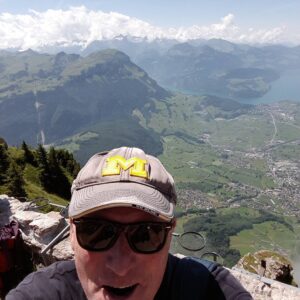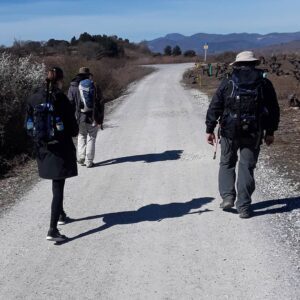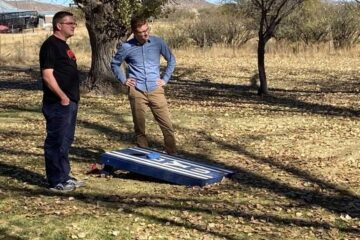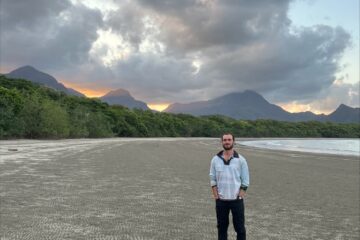I had the privilege of visiting with Dr. Douglas Brouwer, a Presbyterian pastor and author who has spent his life exploring the profound connection between travel and spiritual growth. His book, “The Traveler’s Path: Finding Spiritual Growth and Inspiration Through Travel,” offers a thoughtful perspective on how our journeys can shape us in unexpected ways.

Photos Courtesy of Douglas Brouwer
Dr. Brouwer’s life story is a testament to the transformative power of curiosity. Growing up in Western Michigan, his parents instilled in him what he considers one of the greatest gifts: curiosity about the world. While his sisters remained in their hometown, Doug’s curious spirit led him on a 40-year journey away from home, serving as a pastor in New Jersey, the Midwest, South Florida, and even Zurich, Switzerland. Each move expanded his understanding of the world and himself.
What makes Dr. Brouwer’s approach to travel unique is his emphasis on meaningful connections rather than simply collecting experiences. He challenges the modern concept of a “bucket list,” noting that studies show we often create these lists to impress others. Instead, he suggests that true fulfillment comes from finding meaning in our experiences and, ultimately, discovering where we belong. For Doug, after decades of global adventures, that place turned out to be back near Lake Michigan, where he started.
The most compelling aspects of our conversation centered around Doug’s pilgrimages and prison visits. At age 60, he walked the northern route of the Camino de Santiago in Spain – a grueling 500-mile journey that tested his limits and taught him powerful lessons about himself. On the very first night, stranded on a mountainside between France and Spain, he faced a sobering realization about his tendency to bite off more than he could chew. Yet, the next morning, he kept going, averaging 17 miles daily for 28 days.
What struck me was his observation about his fellow pilgrims. While 99% of them claimed they weren’t religious or spiritual, they instinctively participated in the ancient rituals along the path – like leaving a burden-stone at the foot of a cross. Brouwer sees this as evidence of an inherent spiritual longing within all of us, even those who don’t identify with formal religion.
His experiences visiting prisons around the world – from Holmesburg Prison in Philadelphia to Robben Island where Nelson Mandela was imprisoned – taught him about recognizing humanity in everyone he encountered. These visits reinforced his belief that we become more human when we discover each other and listen to each other’s stories. 
Perhaps the most touching moment in our conversation came when I asked Doug about his favorite place in the world. With emotion in his voice, he described the shores of Lake Michigan as his “happy place” – the spot he would dream of when feeling low. “All of this moving around, all of the searching that people do, I think, is a search for home,” he reflected. “Where is it that I belong?”
Dr. Brouwer’s definition of adventure beautifully encapsulates his philosophy: “Going somewhere and finding meaning in the experience.” His journey reminds us that sometimes the greatest adventure leads us right back where we started, with a deeper appreciation for home and a richer understanding of ourselves and the world around us.


